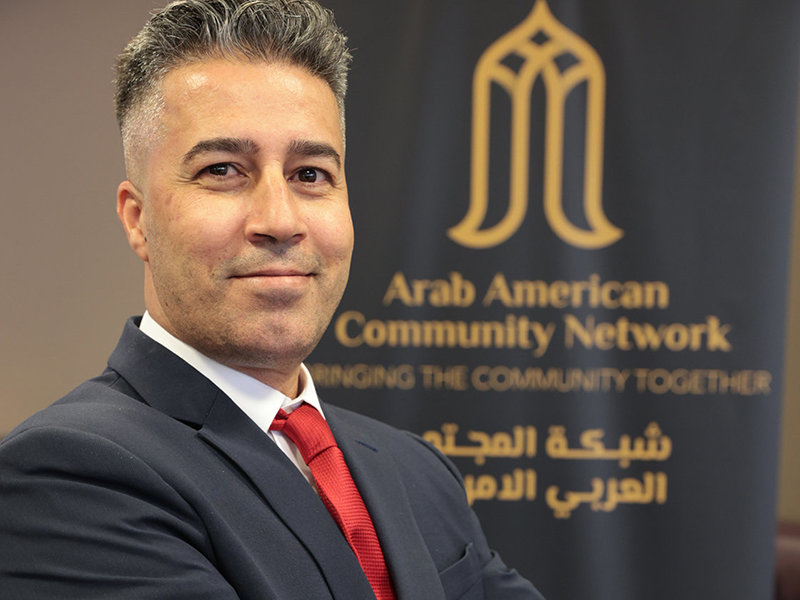Using Human Rights Education to Create a Culture of Peace
Subjected to the privations of a childhood in wartorn Iraq, a San Antonio sociology professor uses the Universal Declaration of Human Rights to create a more just and equitable world
Born in Iraq in 1974, Haetham Abdul-Razaq was 8 when war broke out between his country and Iran. Any childhood innocence or illusion of safety was shattered when his father disappeared and was presumed dead. Eight years of war, followed by harsh sanctions imposed on Iraq after the first Gulf War increased the hardship suffered by his family and those of his fellow Iraqis. “One common and fundamental principle is crucial to the well-being and prosperity of people, as well as the protection of their dignity, differences and ability,” Abdul-Razaq said in an interview with United for Human Rights, a human rights educational initiative supported by the Church of Scientology. “That principle is believing, embracing and applying human rights to improve the world.”

Abdul-Razaq immigrated to America in 2005 and set his sights on what he could do to help create a society based on human rights. He graduated from Texas State University, earned a master’s degree in sociology and a Ph.D. in culture, literacy, and language from the University of Texas at San Antonio. He serves as a sociology professor and student mentor at San Antonio’s Northwest Vista College.
One challenge he faces is that his students take human rights for granted. Some are oblivious to human rights violations. So he identifies human rights abuses, subtle or significant, to reach them with the importance of protecting their own rights and the rights of others.
He finds the educational materials of United for Human Rights (UHR) help his students draw a personal connection with the 30 articles of the Universal Declaration of Human Rights. These rights cease being simply words on a page. They become vivid concepts and with tangible impact on the quality of life.
Student comments on his classes illustrate Abdul-Razaq’s success. “He is extremely passionate about his job and students and really shifts your perspective on a lot of things,” wrote one. “He actually reignited my hunger to learn and expand my mind,” wrote another. “Really made you think about life and how you see things—things that I never really thought of,” wrote yet another.
Abdul-Razaq is founder of the United for Human Rights San Antonio Chapter and cofounder of the Arab American Community Network, a nonprofit established to “educate, empower, provide access to resources, utilize capacity building, and promote social change among Arab Americans.”
United for Human Rights is a nonprofit, international education program sponsored by the Church of Scientology and Scientologists. Thanks to this support, United for Human Rights educational materials are available free of charge to anyone wishing to use them to educate others on these fundamental rights. UHR was inspired by Scientology Founder L. Ron Hubbard’s belief that “Human rights must be made a fact, not an idealistic dream.”
For more information, watch Voices for Humanity, an original series featuring change-makers of all faiths, cultures, and nations who extend help to their communities through Scientology-sponsored humanitarian programs.
The Scientology religion was founded by author and philosopher L. Ron Hubbard. The first Church of Scientology was formed in Los Angeles in 1954 and the religion has expanded to more than 11,000 Churches, Missions and affiliated groups, with millions of members in 167 countries.
CONTACT:
Church of Scientology Media Relations
mediarelations@churchofscientology.net
(323) 960-3500 phone
(323) 960-3508 fax

